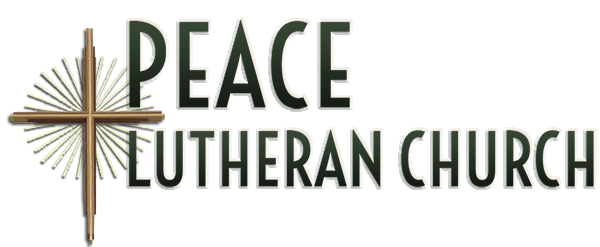Maundy Thursday story gives us our job description
1Now before the festival of the Passover, Jesus knew that his hour had come to depart from this world and go to the Father. Having loved his own who were in the world, he loved them to the end. 2The devil had already put it into the heart of Judas son of Simon Iscariot to betray him. And during supper 3Jesus, knowing that the Father had given all things into his hands, and that he had come from God and was going to God, 4got up from the table, took off his outer robe, and tied a towel around himself. 5Then he poured water into a basin and began to wash the disciples’ feet and to wipe them with the towel that was tied around him. 6He came to Simon Peter, who said to him, “Lord, are you going to wash my feet?” 7Jesus answered, “You do not know now what I am doing, but later you will understand.” 8Peter said to him, “You will never wash my feet.” Jesus answered, “Unless I wash you, you have no share with me.” 9Simon Peter said to him, “Lord, not my feet only but also my hands and my head!” 10Jesus said to him, “One who has bathed does not need to wash, except for the feet, but is entirely clean. And you are clean, though not all of you.” 11For he knew who was to betray him; for this reason he said, “Not all of you are clean.”
12After he had washed their feet, had put on his robe, and had returned to the table, he said to them, “Do you know what I have done to you? 13You call me Teacher and Lord—and you are right, for that is what I am. 14So if I, your Lord and Teacher, have washed your feet, you also ought to wash one another’s feet. 15For I have set you an example, that you also should do as I have done to you. 16Very truly, I tell you, servants are not greater than their master, nor are messengers greater than the one who sent them. 17If you know these things, you are blessed if you do them.”
31b“Now the Son of Man has been glorified, and God has been glorified in him. 32If God has been glorified in him, God will also glorify him in himself and will glorify him at once. 33Little children, I am with you only a little longer. You will look for me; and as I said to the Jews so now I say to you, ‘Where I am going, you cannot come.’ 34I give you a new commandment, that you love one another. Just as I have loved you, you also should love one another. 35By this everyone will know that you are my disciples, if you have love for one another.” John 13:1-17, 31b-35
Can you remember a time – or perhaps many times – in your life when you wanted to be – or chose to be! – part of a particular group of people? It may have been because the group you admired was made up of “popular people,” people who were always noticed or who always seemed to be having fun. Or perhaps a group that was involved in something you really liked. Or perhaps, it was simply because you had an interest in one particular person in that group, and it didn’t really matter what the group was doing, as long as you could be with that one person.
On the opposite side of that picture are groups that try to entice individuals to join them: political parties who want our votes and our dollars to promote their ideas and ideals, sports teams who want fans to cheer for them and spend their money for tickets and memorabilia, social action groups who want our support to help promote their particular ideals.
Love: It’s our job
In recent years, our churches – including our own community here at Peace – have also been trying to find ways to encourage people to join with us, to discover what will make people want to be a part of our community. Many of us remember a time when no one really had to work at that; if you built a church, people came. But the culture has shifted, and church is no longer at the center of culture; so people no longer come automatically. And so we’ve begun to ask ourselves “What do we need to do so that people will want to come?” There are a lot of folks out there who have made it their life’s work to research and study and write books and articles to help answer that question. And we buy the books and read the articles and try to find the ways we think will work in our own place… and often end up neglecting the primary book we should be using to lead us and guide us.
In the scriptures that bear witness to God’s constant presence in human history, our Lord tells us – as he told his disciples on that night so many years ago – exactly what works:
34I give you a new commandment, that you love one another. Just as I have loved you, you also should love one another. 35By this everyone will know that you are my disciples, if you have love for one another.
The purpose of Christian community is to bear witness to God’s love for us, revealed most clearly in Jesus. An attractive building, well planned worship, wonderful music, and a variety of activities and programs have no value if people are drawn by the programming but are not touched by the love of God.
I give you a new COMMANDMENT, Jesus said – a commandment: That you love one another as I have loved you. In Christian community, loving one another is not an option; it is what is expected of us by the one who has first loved us, and who demonstrated that love by coming among us as one of us, human and vulnerable, to serve even to the point of death; to demonstrate to us what it means to love – to teach us to love each other in the same way.
Maundy Thursday is named for this command: from the Latin word mandatum: which means “command”.
In a world and a culture where so many people feel powerless, exploited, vulnerable and unloved, if the church can learn to be a place where people see love lived out, they will come out of their own longing to be part of that love. If the church can learn to be a place where the central focus is truly on Jesus and not on us, people will come – as we do – out of their own hunger for grace, forgiveness and healing.
Isn’t that what drew each of us here today – a deep desire to experience the love of Jesus? To hear again the story of how he knelt at his disciples’ feet to wash off the dust and weariness of the road? To share with Peter the bewilderment of having a Lord and Savior who leads through serving and self-giving?
To remember that we, too, have been thoroughly washed by Jesus in the waters of baptism, and come to be cleansed of the dust on our feet through confession and absolution and the meal of bread and wine in which Jesus comes to fill us with himself – so that we would know how deeply we are loved?
This is not an experience we should take lightly. This coming together is not a routine activity – a ritual to be fulfilled- it is as essential for our life in Christ as breathing is for our mortal existence. As we come together to share this meal, Jesus is present with us to heal us, to forgive us, to feed us, to humble us and to love us.
Enough love to share
And he commands us to not hoard this gift for ourselves, but out of this gift to learn to love one another in the same way, and to create a community that demonstrates to the whole world that we are his disciples. Not a community of self-righteous, unforgiving, judging people, but a people of gracious forgiveness, service and self-giving, who love one another the way our Lord and Savior loves us.
“Well, pastor,” you may say, “that sounds real good in a sermon but the reality is that we’re just people. We try to be as good as we can, but we’re not perfect and all we can do is try.”
If all we do is try, relying on our own resources, then we will surely fail. The truth is we should not be trying to do it on our own at all. The learning for us is how to give ourselves over to God so that God can work through us. We will never, on our own, be able to love the way Jesus loves. But when we are willing to be people through whom God’s love flows to the world, God will do amazing things through us. And it is Jesus’ example that teaches us how to do that, too. When he found himself struggling, he took himself to a place where he could pray, to be in the presence of his Father, to be strengthened and empowered to do what his human nature resisted.
“And I, when I am lifted up, will draw all people to myself,” Jesus declared. In the end, while it is good that we pay attention to the quality of our programs, our music, our worship and our building, they are meaningless unless we stop trying to do it on our own, remember to turn to God often in prayer and in scripture and begin paying attention to how well we are living out Jesus’ command to love one another as he has love us- so that all the world will know that we are his disciples.
Amen.
Pastor Eileen Smith Le Van


